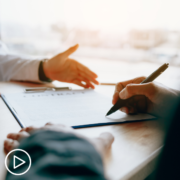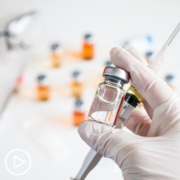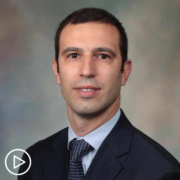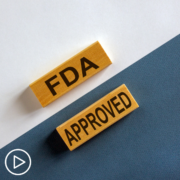What Can Follicular Lymphoma Patients Expect With Remission?
What Can Follicular Lymphoma Patients Expect With Remission? from Patient Empowerment Network on Vimeo.
For follicular lymphoma patients, what can they expect to happen with remission? Expert Dr. Kami Maddocks from The Ohio State University explains how remission can vary among patients and shares an overview of potential treatments.
See More from START HERE Follicular Lymphoma
Related Resources:
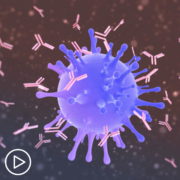
|

|
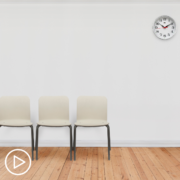
|
Transcript:
Lisa Hatfield:
So one person says, “I’m currently in remission, what can I expect in my future? How long does remission last? And is treatment after remission the same as initial treatment?”
Dr. Kami Maddocks:
So that is very dependent on what a patient receives. So there are different kind…of a lot of our treatments we look at median times. When patients have relapse, that can be a little bit different for single agent antibody therapy versus antibody in combination with chemoimmunotherapy for how long that treatment remission lasts. As far as we don’t typically reuse a treatment once we have used it before, although there is data in follicular lymphoma when patients receive single agent antibodies. So rituximab (Rituxan) alone, if they do well with that single agent immunotherapy for a long period, they may receive re-treatment with just that so long as they don’t have disease that requires more aggressive treatment.
Lisa Hatfield:
So is that more likely to happen then if a patient maybe wasn’t refractory to it, if they just stopped using it for some reason? Would that be more common for that to happen to go back on that same drug?
Dr. Kami Maddocks:
So with rituximab, we use it alone and in combination. So there are some patients that don’t necessarily have what we call a large tumor, and they don’t have a lot of lymph nodes, or they don’t have large lymph nodes, but they might be symptomatic from them, or the location might be problematic. And so once these lymph nodes get a certain size, they usually don’t have as good of a response to single agent antibody therapy. But there are patients who have small lymph nodes that aren’t as big but again are causing a problem that can get completely…you give a short course of the rituximab, and it can last for a very long time and then you would consider again using a short course of that rituximab.
The chemotherapies we have, we don’t reuse chemotherapy, for the most part. Some of that, for a while, there was bendamustine (Treanda) if patients got five, six, 10-year remissions out of it. Sometimes they would re-get that chemotherapy. But I think we’ve just seen so many newer therapies approved in the last five six years. Like the bispecifics, the EZH2 inhibitors, lenalidomide (Revlimid), CAR T, we had different PI3K inhibitors available for a while. And so I think it was just that you had the ability to offer a patient something that they never had before, and that is more appealing.
Share Your Feedback:
Create your own user feedback survey


